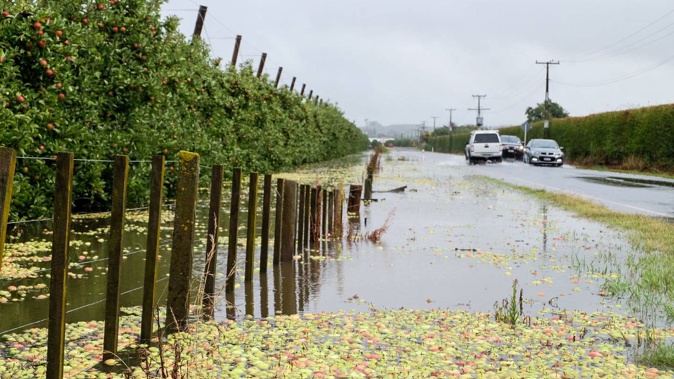
Big losses from recent storms have some fruit and vegetable growers worried the weather disasters will drive people out of the industry.
Horticulture NZ said today’s food price index spike was no surprise because repeatedly “atrocious weather” had hit vegetable supplies.
Stats NZ data released today showed food prices were 10.3 per cent higher in January 2023 than a year earlier, with fruit and vegetables prices rising 15.7 per cent from last January.
“Some vegetable growers in Pukekohe are reporting losses of up to 30 per cent due to the weather event that happened in that area in late January,” Murphy said, referring to the Auckland Anniversary weekend floods.
He said current weather and trading conditions could deter growers from staying in business.
“Some growers are questioning whether they will be able to stay in the industry. This is a risk to New Zealanders’ food security, and health and wellbeing, as well as to regional economies.”
He said growers faced increasing costs from bad weather, poor growing conditions, reduced supply, and rising production costs.
“Growers must be able to cover their costs” to ensure business is sustainable so Kiwis can “enjoy fresh, healthy New Zealand-grown vegetables,” Murphy said.
Pukekohe was battered by severe flooding last month with crops including onions severely impacted.
Vegetables NZ chair John Murphy said it was too soon to predict how Cyclone Gabrielle will impact supply nationwide.
- Floods may have devastating economic impact on the rural sector
- 60 percent of maize crops in the Bay of Plenty wiped out by weather
- Auckland floods: Sandringham business owner speaks out over 'avoidable' damage
But growers have also raised concerns about rising fertiliser costs, labour shortages, and fuel and shipping costs.
Hinemoa Growers’ Chris Nicholson said the cost of fertiliser had doubled in one year and the price of some chemicals had shot up between 15 to 30 per cent.
“With a labour shortage as well, we’ve got to pay staff well above the pay rate to keep them,” Nicholson said.
Tonnes of crops were washed out of fields during the storm in Pukekohe, where onions litter the roadsides. Photo / John Weekes
“It’s getting harder and harder. There’s a lot of growers who because of the red tape and all the extra paperwork we have to do on the growing side of it, can’t afford it. So they decided to give up.”
Nicholson said supermarket prices did not reflect rising costs for growers.
Foodstuffs said today the average cost increase from suppliers went up 9.4 per cent on the same products, compared with January 2022.
It said the cost passed onto customers was 9.3 per cent higher compared with a year ago.
Foodstuffs said this meant supermarkets held prices lower than inflation in January and lower than cost increases faced from suppliers.
“The largest component of shelf prices is the cost of goods from our suppliers – around 68c in every dollar,” the grocery retailer said.
Yesterday, economic consultancy firm Infometrics released January’s Foodstuffs New Zealand Grocery Supplier Cost Index. It showed a 10 per cent rise in cost for supermarkets from grocery suppliers.
Foodstuffs said its co-operatives have held price increases to customers below inflation and below supplier cost increases since May 2022.
Foodstuffs Managing Director Chris Quin said adverse weather events were proving to be the wildcard for food growers, manufacturers and retailers in New Zealand.
“Auckland’s wettest January on record has been really tough for local growers, with the long-term impact of the floods on crops like onions, lettuces and some root vegetables still to be felt,” Quin said.
A tight labour market, pressure on wages and salaries, persistently high fuel costs, and high feed and fertiliser costs for suppliers were also creating problems.
Quin said Foodstuffs supermarkets were keeping food prices below inflation, making fresh produce like cauliflower, broccoli, strawberries and lettuce affordable.
Take your Radio, Podcasts and Music with you

/cloudfront-ap-southeast-2.images.arcpublishing.com/nzme/2FNOOPEICNEQDFOOCSHJKXSXYI.PNG)








